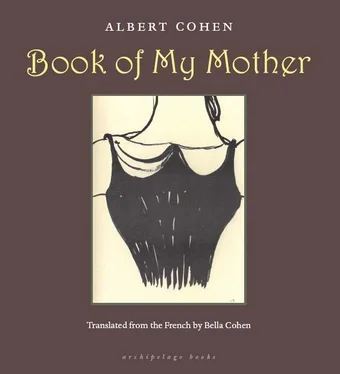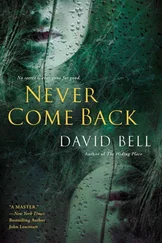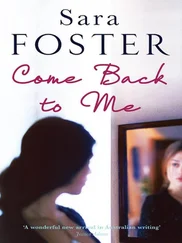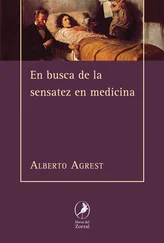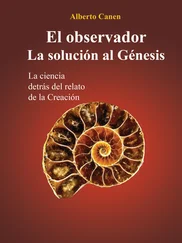Albert Cohen - Book of My Mother
Здесь есть возможность читать онлайн «Albert Cohen - Book of My Mother» весь текст электронной книги совершенно бесплатно (целиком полную версию без сокращений). В некоторых случаях можно слушать аудио, скачать через торрент в формате fb2 и присутствует краткое содержание. Год выпуска: 2012, Издательство: Archipelago Books, Жанр: Современная проза, на английском языке. Описание произведения, (предисловие) а так же отзывы посетителей доступны на портале библиотеки ЛибКат.
- Название:Book of My Mother
- Автор:
- Издательство:Archipelago Books
- Жанр:
- Год:2012
- ISBN:нет данных
- Рейтинг книги:5 / 5. Голосов: 1
-
Избранное:Добавить в избранное
- Отзывы:
-
Ваша оценка:
- 100
- 1
- 2
- 3
- 4
- 5
Book of My Mother: краткое содержание, описание и аннотация
Предлагаем к чтению аннотацию, описание, краткое содержание или предисловие (зависит от того, что написал сам автор книги «Book of My Mother»). Если вы не нашли необходимую информацию о книге — напишите в комментариях, мы постараемся отыскать её.
, which later grew into
. Achingly honest, intimate, moving, it is a tribute to all mothers.
Albert Cohen
Solal
Mangeclous
Belle du Seigneur
Les Valereux
Book of My Mother — читать онлайн бесплатно полную книгу (весь текст) целиком
Ниже представлен текст книги, разбитый по страницам. Система сохранения места последней прочитанной страницы, позволяет с удобством читать онлайн бесплатно книгу «Book of My Mother», без необходимости каждый раз заново искать на чём Вы остановились. Поставьте закладку, и сможете в любой момент перейти на страницу, на которой закончили чтение.
Интервал:
Закладка:
The sin of living is everywhere. If the sister of the consumptive wife is young and healthy, may God take pity on the husband and the sister who together nurse the sick woman they sincerely love. They are alive and well, and when the consumptive wife is asleep, drugged with morphine and smiling with a rattle in her throat, they walk together in the garden steeped in night. They are sad, but they savor the sweetness of the fragrant garden, the sweetness of being together, and that is almost an act of adultery. Or take the widow who, sincere in her grief, has nonetheless put on silk stockings to go to the funeral and powdered her face. Sin of living. Tomorrow she will wear a dress which she has no wish to be unflattering and which will set off her beauty. Sin of living. And beneath the grief of this lover sobbing in despair at the graveside there lurks perhaps an awful involuntary joy, a sinful joy at being still alive, an unconscious joy, an organic joy which is beyond his control, an involuntary joy at the contrast between the dead woman and the living man giving vent to grief which nevertheless is sincere. To feel grief is to live, to be one of the living, to be still of this world.
My mother is dead but I am hungry, and soon, despite my grief, I shall eat. Sin of living. To eat is to consider oneself, to love living. My dark-ringed eyes are in mourning for my mother, but I want to live. Thank God, they who sin by living soon become the dead whom the living offend.
What is more, we very soon forget our dead. Poor dead, how forsaken you are in your earth and how deeply I pity you, poignant in your everlasting solitude. Dead, my darlings, how terribly alone you are. In five years or less I shall be more willing to accept the idea that a mother is something ended. In five years I shall have forgotten some of her gestures. If I were to live a thousand years, perhaps in my thousandth year I would no longer remember her.
XXI
WHAT KIND OF a farce is this? My mother was born, she came into the world, she took delight in her son, she delighted in her dresses, she laughed, she had high hopes, she took much trouble, she covered my schoolbooks with pretty glossy pink paper with such care and the little intake of saliva which denotes concentration, she was so afraid of illness, she had such absurd faith in her doctors, she prepared so many months in advance for her lovely visits to Geneva, which were her dream, she was so delighted by my compliments, so happy when I told her she had certainly lost a few kilos, which was never true, so happy when I pretended to like her poor, dignified, clumsy little hats, which were so economically concocted and revamped. And all that, all of it, to what purpose? To no purpose. To end up in a hole.
She had been young, my old Maman. I remember that when I was six she came to fetch me one day from the Catholic sisters’ school. How beautiful I thought her, my young Maman. I proudly surveyed her face under her hat on which a stuffed parakeet was expiring, a hat as ridiculous as my own sailor hat of boiled leather, unique of its kind, fruit of the meditations of a hatter instantly punished and struck down by well-deserved bankruptcy. I gazed fervently at my slender Maman of twenty-five and told her she was the most beautiful Maman in the world. And she laughed happily. Devil or God, why in the future corpse did you put that laugh, that absurd need of joy which only immortals should have? We are born to be swindled on this earth.
Why, my God, why did she laugh with joy at being young and beautiful, since now she lies deep in earth? How hard it is to breathe in a coffin: the poor dead stifle there. Why in her youth did she laugh because she was young, laugh because her child admired her, why if that other laugh was one day to come — the frozen laugh of the dead turned to skeletons? Why was my darling a sweetly toothless baby, a baby they bathed in a bucket in the sunshine, a baby joyfully splashing and enthusiastically jerking her little legs in the water, a frenzied dainty little cyclist in the water, foolishly delighted to be living and kicking, and now nothing? Why did she live if she was horribly to die? Why was she happy, why did she hum old arias with a vivacity which embarrassed me, why did she wait and hope so much? Why, before my visits to Marseilles, did she so eagerly and pointlessly, a month in advance, take such pains to prepare and arrange the flat, which she wanted to be grand enough for me, that poor flat which she insisted was repainted and repapered in my honor and which in my honor she would cram with artificial flowers and even, on the eve of my arrival, with expensive fresh flowers strangled by a narrow vase quite bewildered to find itself at so unusual a festival? How hopeless she was at arranging flowers, poor darling. Why so much effort and enthusiasm to fix up her poor flat like a theater set for the great event, the arrival of the eyes of her son, her modest flat in poor taste which was her faith, that pathetically respectable flat all festooned and garlanded in my honor, her lamentable homeland which my naïve darling thought sumptuous and sure to find favor in my eyes and do credit to the impeccable housekeeper she was convinced she was? I did not compliment her enough on her taste, and sometimes I even laughed at her a little. Too late now. What is done is done. Anyway, she loved everything about me — even my sarcasm.
Why so much commotion, since the earth now lies heavy upon her and she is impassible? Why on the eve of my arrival did she so fervently deck her revered humble washroom with incongruous theatrical curtains, the poor washroom which with all the ardor of her soul she turned into a Palace of Lace? Why so much enthusiasm if it was destined to end in nothingness? Why did she attach importance to so many things, and what was the point of it? Why in expectation of the visit of her Western darling did she so passionately purchase such huge quantities of the tea which for her was a strange medicinal herb inconceivably liked by the Gentiles, proudly proclaiming in a burst of courage in the local shop where it had been growing musty since the time of Napoléon III that she was buying tea for Her Son Who Was About To Arrive, that insipid tea which had lost all taste, which she made so badly and with so much care, and which I would declare perfect, only to tease her about her incompetence the following day. Nevermore will I tease her. Why did she so cherish her piles of linen, which she would inspect and usually pat, delighted and proud and sighing with satisfaction? Why was she so enthusiastic about going to the theater with me — “Quick, hurry up, we’ll be late” — why so much excitement about everything, why did she smile at me so much if she was so completely to disappear?
All her efforts to please, her guileless titivation, her enthusiasms, her little sparks of pride, her joys, her moments of susceptibility — all that is dead forever, has suddenly never existed, was pointless. Just as the pages I am writing now, the nights I spend writing them, are all so vain, so pointless. I shall die. No more I soon. And after my death someone perhaps will also wonder why I came into the world, why I lived and so absurdly enjoyed writing, and why I was so ridiculously delighted at what seemed to me a written truth, a well-turned phrase, or a flash of inspiration. And even what I have just written about my death and the uselessness of writing gives me some joy of living and some sense of usefulness.
XXII
HERE I AM in my room, one of the human nation, scandalized by universal death, asking sterile questions. Here I am, asking constantly for my mother, asking nothingness for my mother. Here I am, a man destitute, abandoned, and aghast, an ashen-faced man seeking to understand; here I am, sweating and breathing hard, for I understand nothing of my human adventure, and my labored breathing is painful but insists sadly on going on, and in the moment between breathing in and breathing out there is always my mother plodding toward me. Each breath I draw is a death striving to live, despair simulating hope. Here I am in front of the mirror, wildly yearning for some happiness in my distress, sadly lacerating myself with grief and yet petrified, dragging my nails across my bare chest, smiling and weak in front of my mirror, where I seek my childhood and my mother, my mirror, which keeps me cold company and in which I know with a smile that I am sunk, completely lost without my mother. Here I am in front of the mirror, a window opening onto death, making knots in a piece of string I have picked up at random which keeps me company, tugging it straight, reknotting it, twisting it mechanically, snapping it in my impatience, sweating and stammering cheerful words in an effort to live. O broken thread of my destiny! In front of the mirror to which I put my questions, I cannot understand why my mother is no more since once she was.
Читать дальшеИнтервал:
Закладка:
Похожие книги на «Book of My Mother»
Представляем Вашему вниманию похожие книги на «Book of My Mother» списком для выбора. Мы отобрали схожую по названию и смыслу литературу в надежде предоставить читателям больше вариантов отыскать новые, интересные, ещё непрочитанные произведения.
Обсуждение, отзывы о книге «Book of My Mother» и просто собственные мнения читателей. Оставьте ваши комментарии, напишите, что Вы думаете о произведении, его смысле или главных героях. Укажите что конкретно понравилось, а что нет, и почему Вы так считаете.
